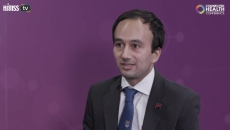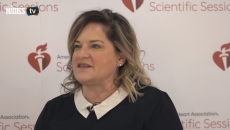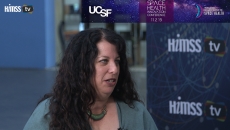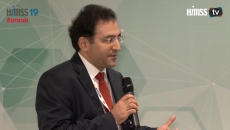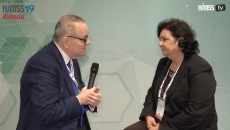Provider
Active monitoring can ask questions while a smartphone's sensors can go deeper into mood and anxiety levels, says Rashmi Patel, Fulbright Scholar at Beth Israel Deaconess Medical Center.
This year, providers have continued to ink deals with big names in tech including Google, Amazon and Apple. The conversation around patient-centered care and technology is also picking up steam.
physIQ Director of Clinical Development Karen Larimer details her company's work to extract raw sensor readings from sensors and highlights the takeaways for clinicians.
The Translational Research Institute for Space Health provides grants to entrepreneurs to help accelerate product development, says Lisa Suennen, chair of the strategic advisory board of TRISH.
Reda Alhajj, a professor at the University of Calgary, says digital transformation has made big strides in Alberta with adoption and the implementation of technology in striving for patient-centric care.
Ilker Köse, technology transfer office director at Istanbul Medipol University in Turkey, says EMRAM is used to manage healthcare, but all stakeholders must work collaboratively to improve outcomes.
Sonia Khayat, general director of International Cooperation at Ministry of Health in Tunisia, says countries such as Tunisia can learn a great deal from Turkey's digital transformation.
This half of the year the FDA has named a new comissioner, continued working on the much anticipated Pre-Cert program and collaborated with the NIH on a new app.
Key benefits of attending conferences such as the AHA Scientific Sessions are the chance to make new connections and directly address physicians, says Chris Wasden, head of pharma at Happify Health.
Triple Regards President Ayumi Maruyama says application designs that are patient-centric can keep users motivated to continue to use them.
